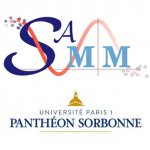Adeline Fermanian, LPSM, le 12 février 2021
par
Sequential or temporal data arise in many fields of research, such as quantitative finance, medicine or computer vision. We will be concerned with a novel approach for sequential learning, called the signature method, and rooted in rough path theory. Its basic principle is to represent multidimensional paths by a graded feature set of their iterated integrals, called the signature. After a general overview of signatures in machine learning, we will focus on one specific problem. In order to combine signatures with machine learning algorithms, it is necessary to truncate these infinite series. Therefore, we define an estimator of the truncation order and provide theoretical guarantees in a linear functional regression setting. We conclude by showing on both simulated and real-world data the advantage of a signature-based regression model compared to traditional functional models when the data is highly dimensional.
